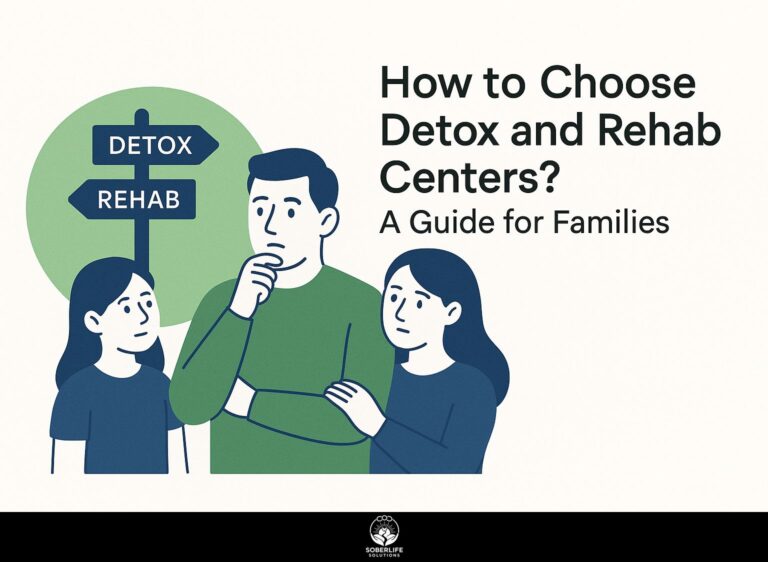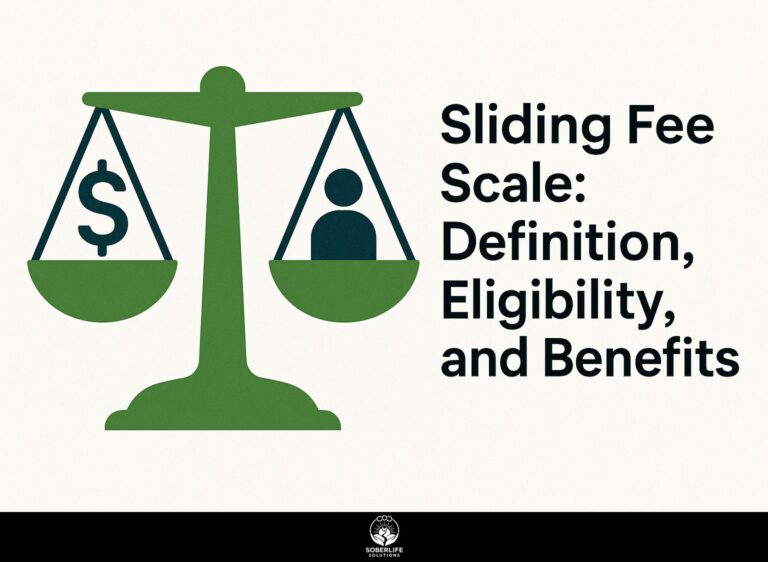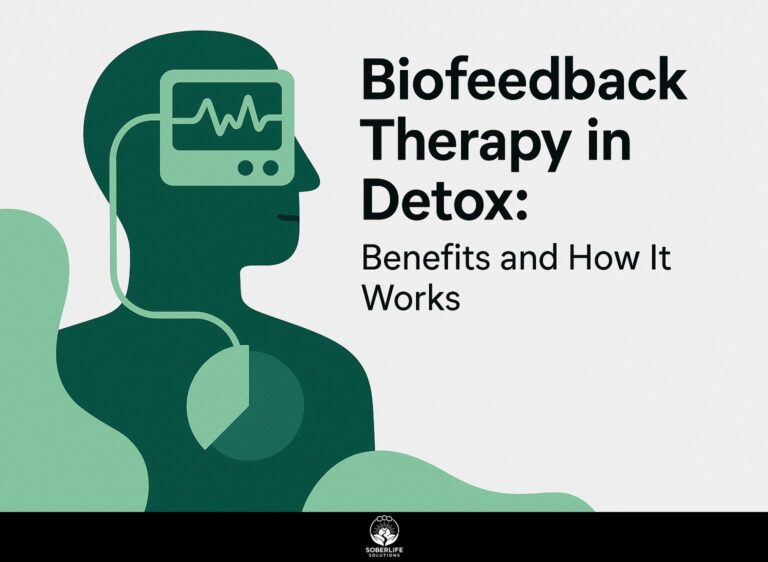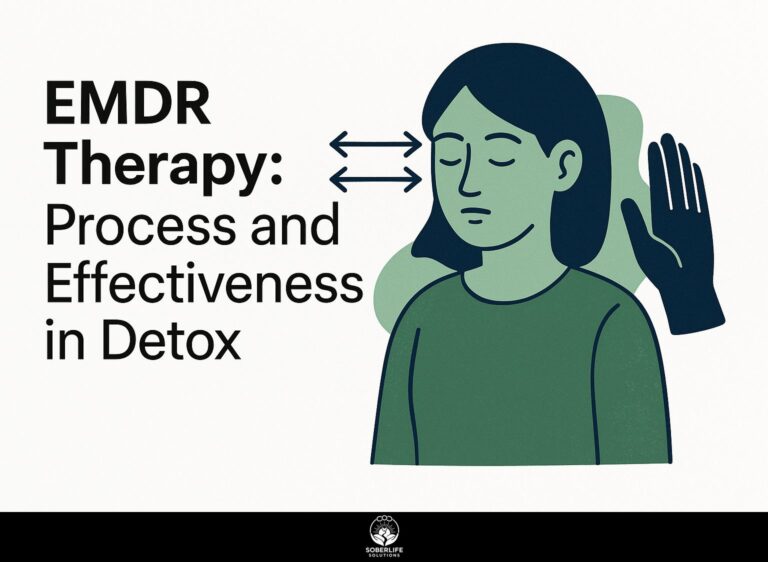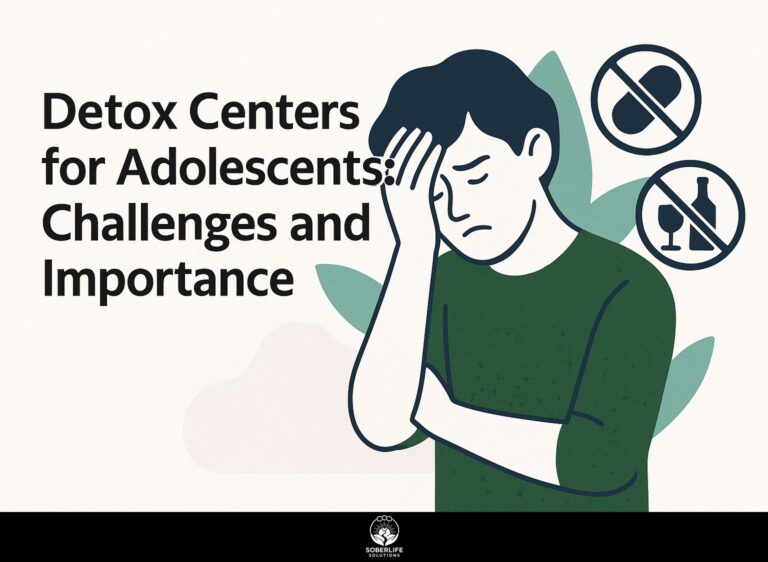Human Rights Committees in Detox Centers: Definition, Role, and Impact
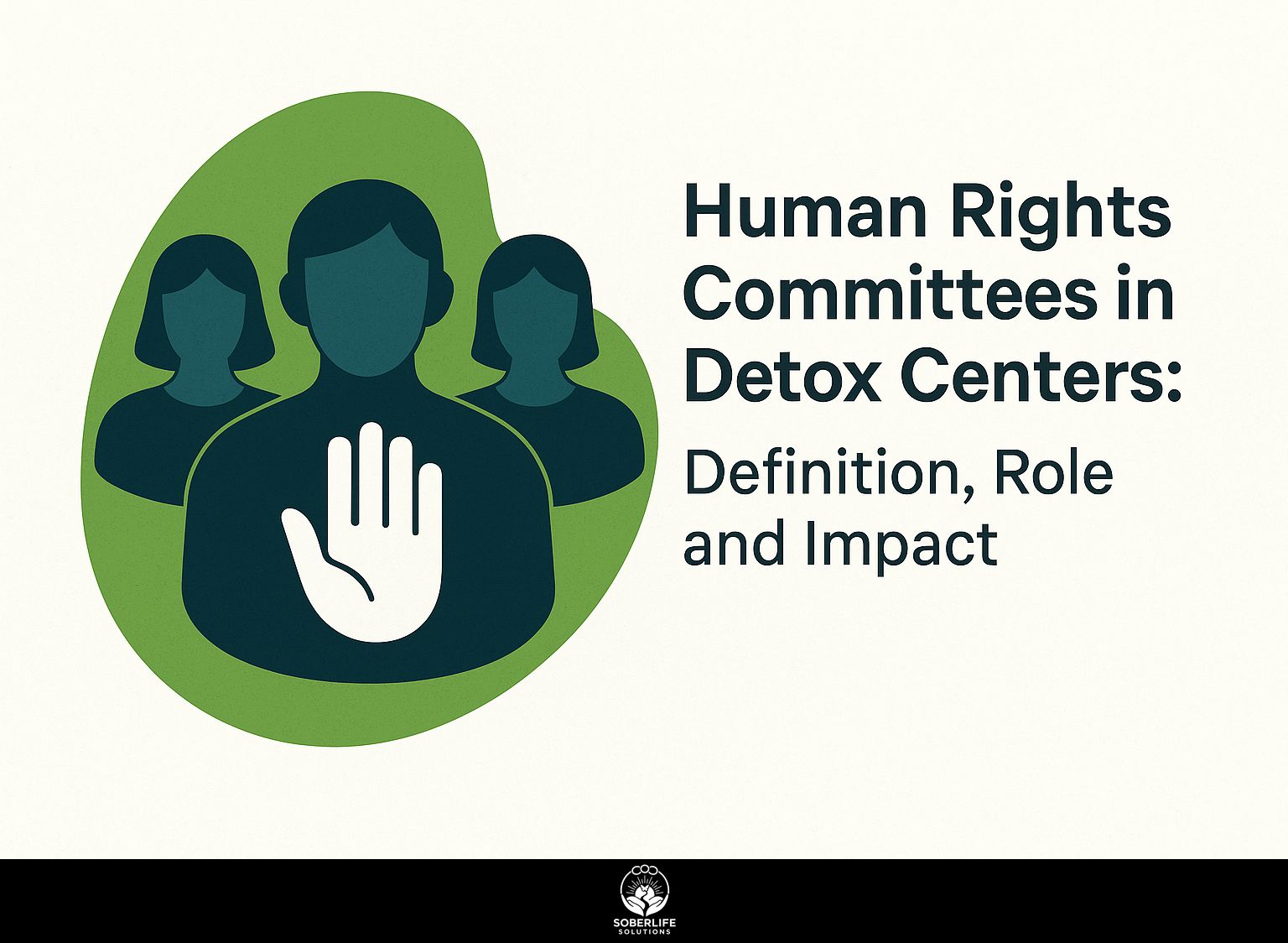
In the field of substance use treatment, human rights committees are important for protecting mental health and dealing with drug dependence. These committees make sure detox centers respect the dignity and rights of patients, leading to better public health results. This article explains what human rights committees are, their duties, and their important effects on patient care and community welfare. Learn how these organizations push for reform and make treatment options better.
Key Takeaways:
Definition of Human Rights Committees
Human Rights Committees are established groups that oversee the protection and promotion of human rights within healthcare settings, especially for vulnerable populations.
These committees work to follow legal rules like the Convention on the Rights of Persons with Disabilities (CRPD) and national laws about human rights. To better understand the CRPD, the United Nations’ Committee on the Rights of Persons with Disabilities provides comprehensive insights, highlighting its global impact.
They typically focus on key objectives such as:
- reviewing patient care policies,
- investigating complaints related to human rights violations,
- providing training to staff on ethical practices.
For instance, a committee might implement regular audits of patient treatment protocols to identify disparities in care or establish a reporting system for patients and families to voice concerns confidentially.
Importance in Detox Centers
In detox centers, Human Rights Committees make sure patients’ rights are protected. This helps reduce stigma and discrimination, leading to better health results.
These committees play a critical role in promoting a culture of respect and dignity. They actively review policies and practices, ensuring they align with human rights standards.
For example, holding regular training sessions for staff can increase awareness of patients’ rights. Committees can implement anonymous feedback mechanisms that allow patients to voice concerns without fear of retribution.
By encouraging open communication, these programs help build a more supportive setting where patients feel recognized and listened to, which leads to improved treatment adherence and recovery rates.
Roles of Human Rights Committees
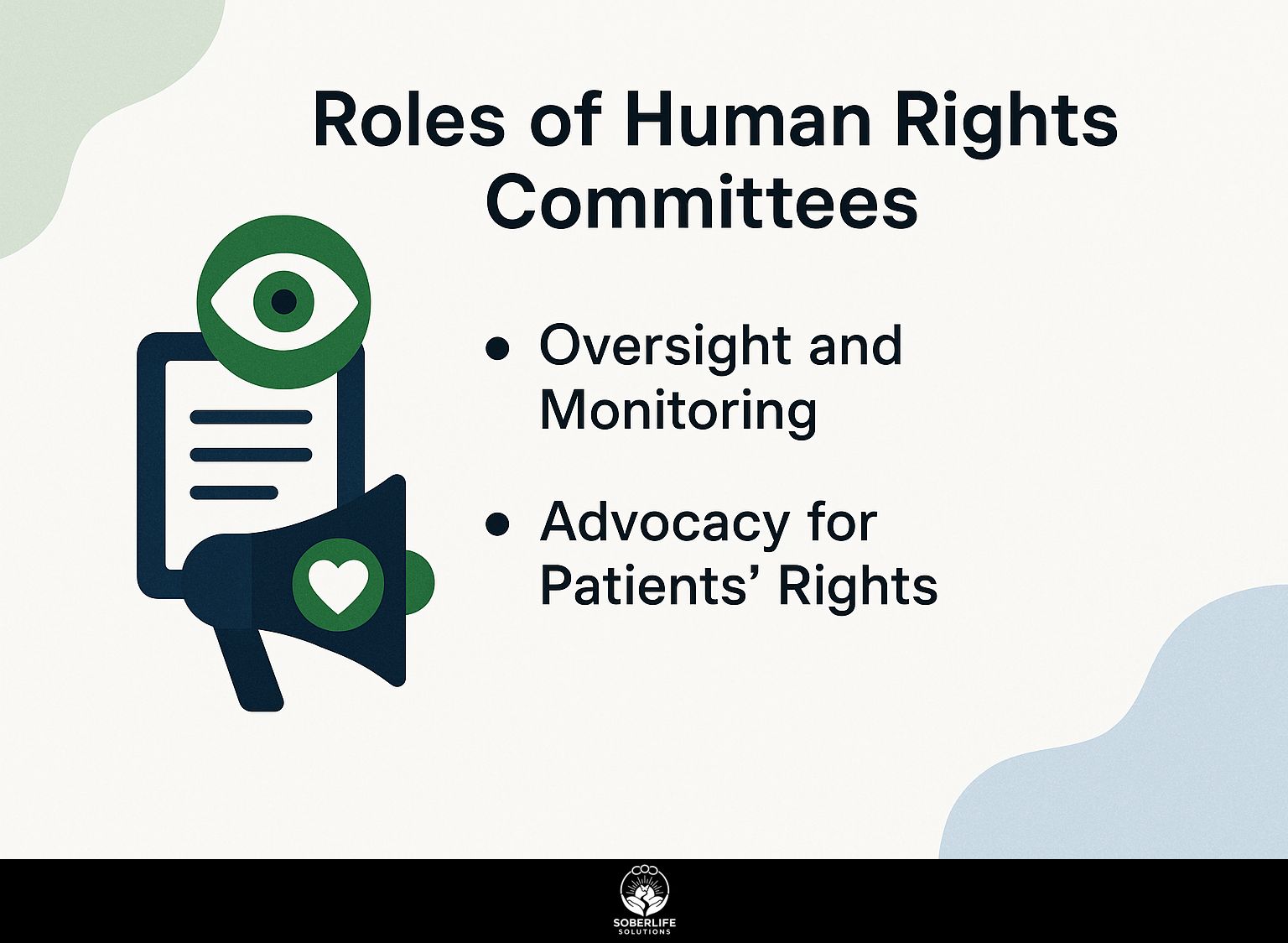
Human Rights Committees have two main jobs that are important for helping patients: reviewing the care they receive and speaking up for their rights.
Oversight and Monitoring
Oversight involves checking the activities in detox centers frequently to make sure they follow ethical rules and respect human rights.
Committees should implement strategies that include biannual audits to review facility practices against established guidelines. Using tools like anonymous surveys or focus groups can provide important information about what patients go through.
For example, tools like SurveyMonkey can help gather feedback quickly. Having monthly meetings to check audit results and patient feedback keeps regular accountability and encourages open communication.
These steps collectively reinforce the prioritization of human rights in detox treatment environments. For context, an in-depth analysis by the World Health Organization explores the ethical standards necessary for such oversight.
Advocacy for Patients’ Rights
Advocacy work helps patients get the resources and support they need during their treatment.
One effective strategy is to engage in community outreach initiatives. Organize health fairs to provide education on available services, magnifying the importance of preventative care.
Complement this with policy recommendations aimed at local lawmakers that advocate for improved insurance coverage and an expansion of telehealth services. Working with local advocacy groups can help make your voice heard. Think about organizing events or workshops together that encourage conversations between patients and healthcare providers. Recent strategies from SAMHSA’s publication highlight innovative approaches for virtual outreach. Related insight: Addiction stigma awareness campaigns can further bolster advocacy efforts.
Utilizing social media to share patient stories and successes can also effectively raise awareness and build momentum for these initiatives.
Structure of Human Rights Committees
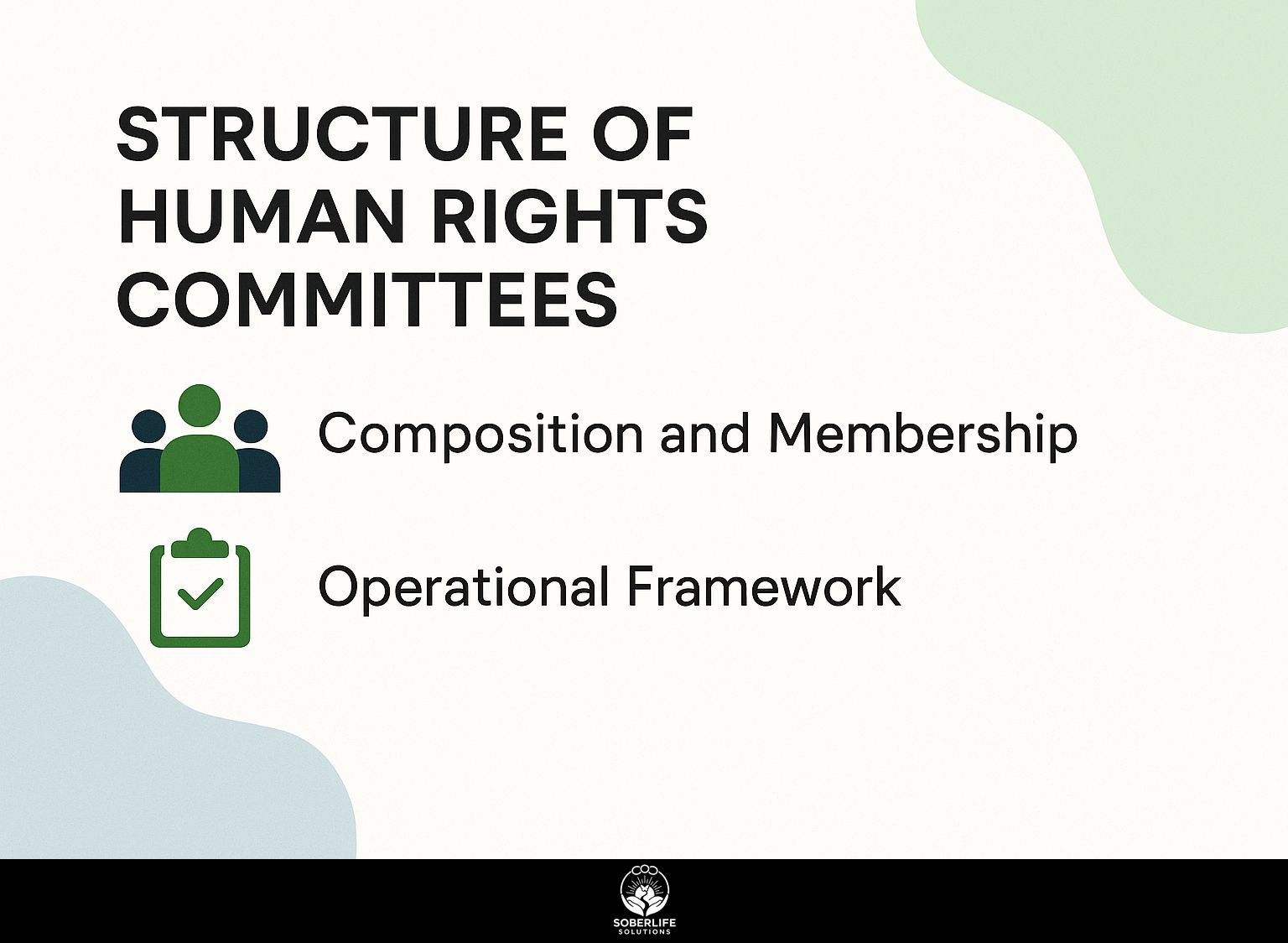
The structure of Human Rights Committees usually includes members from different professional fields, providing a thorough approach to patient rights.
Composition and Membership
A Human Rights Committee with a wide range of members includes healthcare professionals, legal specialists, and patient advocates, providing different viewpoints.
This diversity enhances decision-making by incorporating various viewpoints, ensuring policies address the community’s requirements. For example, healthcare providers can focus on medical ethics, while legal experts make sure to follow human rights laws.
Patient representatives, with their firsthand experiences, advocate for practical policy applications. Committees should look for members from underrepresented groups, provide regular training to recognize bias, and create an inviting environment for open discussion.
This team-based method helps create thorough and efficient policies.
Operational Framework
The guidelines for Human Rights Committees direct their work, providing ongoing oversight and action as needed.
Monthly meetings are key for discussing current cases, reviewing policies, and planning community projects.
During each meeting, committee members give detailed reports, update on particular cases, and discuss new human rights concerns. Evaluation metrics include tracking the number of interventions made, the responsiveness of authorities, and public awareness levels.
For example, a recent project to increase local participation included surveys that provided clear information on how the community perceives human rights, helping to develop more targeted actions.
Impact on Detox Center Operations
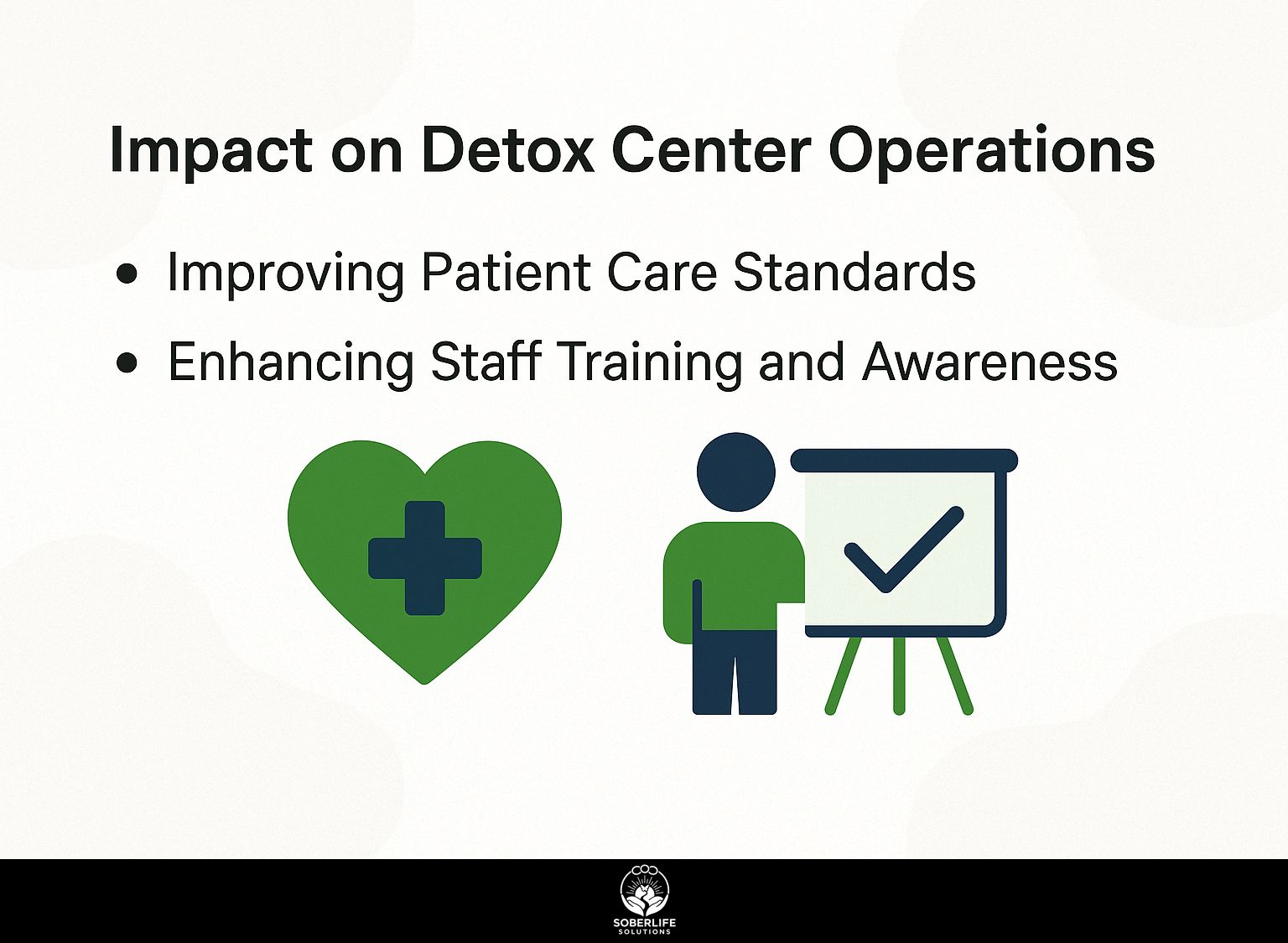
Human Rights Committees play an important role in detox centers by raising the quality of patient care and creating a caring atmosphere.
Improving Patient Care Standards
By establishing clear guidelines and standards, Human Rights Committees improve the quality of care patients receive during detox.
For instance, implementing standardized screening protocols has led to a 30% increase in identifying opioid dependency in patients within the first 24 hours.
Regular training sessions for staff on these guidelines have resulted in a noticeable rise in patient satisfaction scores, with a reported 40% decrease in complaints regarding care approaches.
Using tools like the Substance Abuse and Mental Health Services Administration (SAMHSA) guidelines helps teams stay aligned and focus on evidence-based practices, which improves patient outcomes during an important recovery period.
Enhancing Staff Training and Awareness
Committees improve staff training by increasing knowledge of human rights issues, resulting in better interactions with patients.
To achieve this, committees can develop training programs that include workshops focusing on topics like cultural competency, mental health awareness, and reducing stigma around marginalized groups.
For instance, a workshop could feature role-playing scenarios to help staff practice empathetic communication. They might hold seminars featuring guest speakers from human rights groups, offering direct experiences and opinions.
Online surveys can gather feedback to regularly improve these programs, ensuring they meet the changing needs of staff and patients.
Challenges Faced by Human Rights Committees
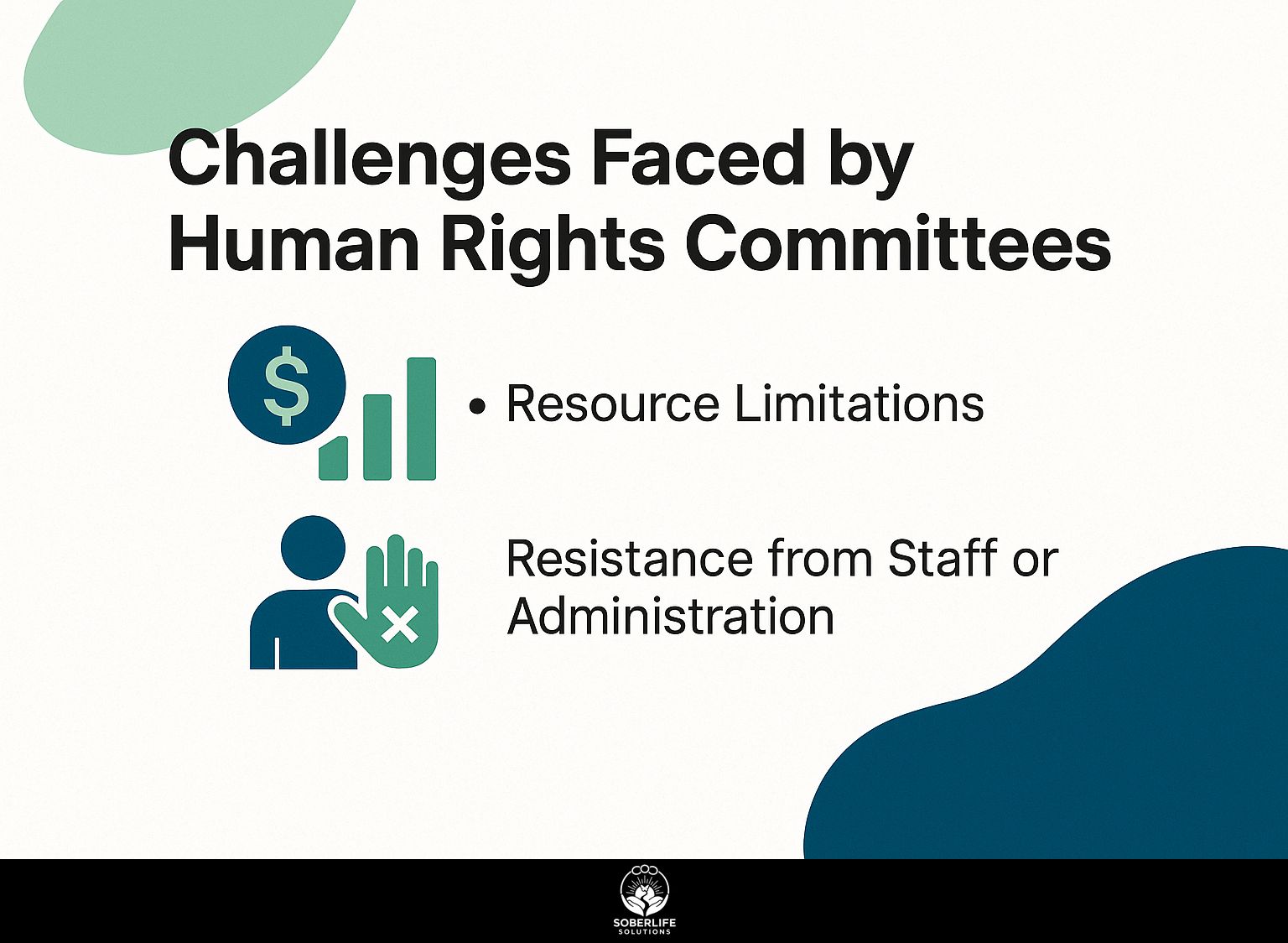
Human Rights Committees in detox centers often have to deal with big problems that can make them less effective.
Resource Limitations
Limited resources can restrict the ability of Human Rights Committees to effectively advocate for patient rights and implement necessary changes.
To deal with limited budgets, committees can try different approaches.
- First, applying for grants can provide essential financial support; organizations like the Robert Wood Johnson Foundation often offer relevant opportunities.
- Second, forming partnerships with local universities or non-profits may yield collaborative projects that share resources.
- Hosting community fundraising events can both increase visibility and gather necessary funds.
By using these methods, committees can improve their work and keep supporting patient rights effectively.
Resistance from Staff or Administration
Resistance from staff or administration can undermine the efforts of Human Rights Committees, creating barriers to implementing best practices.
To address this resistance, it’s important to include stakeholders by being clear in communication and making decisions jointly. Begin with open meetings where employees can share their issues, creating a welcoming atmosphere.
Use tools like surveys or anonymous feedback forms to understand opinions and gather useful information.
Provide workshops that teach employees about the significance of human rights projects and showcase successful examples to create a strong story.
By addressing concerns and providing education, committees can create a pathway toward smoother implementation of best practices.
Future Directions and Recommendations
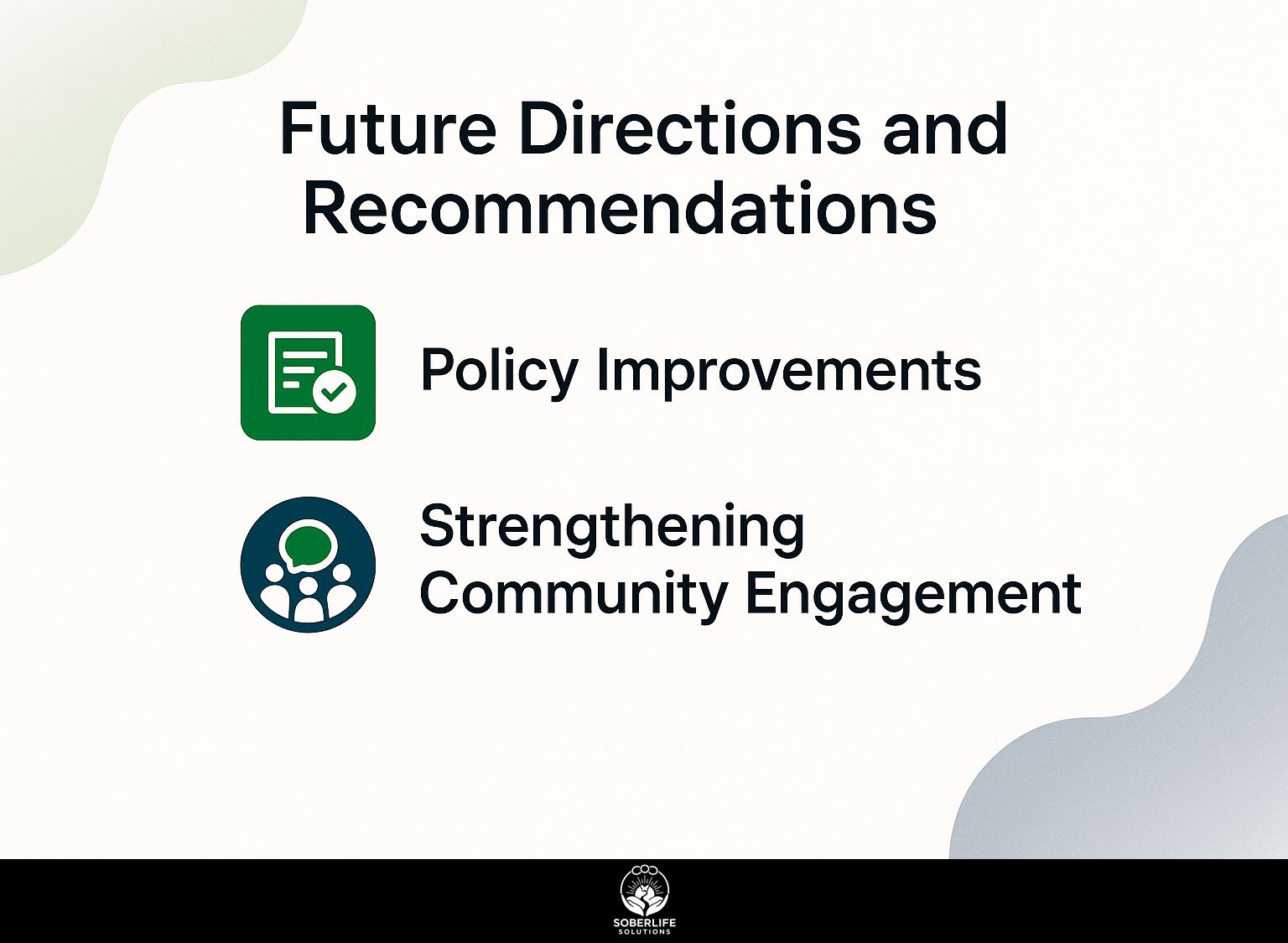
Human Rights Committees need to concentrate on important aspects to improve their work and make a greater difference in detox centers.
Policy Improvements
Advocating for policy improvements can significantly expand treatment access and patient rights protections in detox centers.
For example, setting up a rule that requires around-the-clock availability of qualified counselors can guarantee patients get quick help. A case study from California demonstrated that centers adopting this policy saw a 30% decrease in withdrawal symptoms due to timely interventions.
Integrating telehealth services can facilitate remote consultations, thus reaching individuals in underserved areas. Research shows that facilities incorporating telehealth have reported a 20% increase in patient engagement.
By focusing on these changes, detox centers can improve both care quality and accessibility.
Strengthening Community Engagement
Efforts to improve community participation can help gain backing for Human Rights Committees and raise awareness about patient rights.
To achieve this, consider implementing outreach programs that involve local schools and community centers.
For instance, organizing workshops can educate citizens on their rights and available resources. Public forums also provide a platform for open dialogue, allowing community members to share their concerns and experiences.
Working with local groups, like nonprofits that focus on health equity, can strengthen your efforts and build a wider support system.
Using social media to post updates and announce events will increase visibility and involvement.
Frequently Asked Questions
What are Human Rights Committees in Detox Centers and why are they important?
Human Rights Committees in Detox Centers are groups of individuals responsible for ensuring that the rights of patients in the detox center are protected and respected. These committees are important because they promote a safe and supportive environment for individuals going through the detox process.
What is the role of a Human Rights Committee in a Detox Center?
The role of a Human Rights Committee in a Detox Center is to monitor and address any issues related to human rights violations within the center. They create rules and guidelines that protect patients’ rights and make sure that staff and others in the facility follow these rights.
Who makes up a Human Rights Committee in a Detox Center?
A Human Rights Committee in a Detox Center may consist of a variety of individuals, including staff members, patients, and community representatives. Having a varied team helps to consider different viewpoints when dealing with human rights problems.
What impact do Human Rights Committees have on patients in Detox Centers?
The presence of a Human Rights Committee in a Detox Center can have a positive impact on patients. It can help them feel safe and backed up when they are in a tough situation and make sure their rights are looked after. It also promotes transparency and accountability within the center.
How do Human Rights Committees in Detox Centers handle human rights violations?
If a human rights violation is brought to the attention of the committee, they will investigate the issue and work to resolve it in a timely and effective manner. This may involve implementing new policies or addressing the behavior of staff members or other individuals in the center.
Do all Detox Centers have Human Rights Committees?
No, not all Detox Centers have Human Rights Committees. All centers should have a group to make sure patients’ rights are protected and respected. If a center does not have a committee, patients can still voice their concerns and report any human rights violations to the staff or management.

